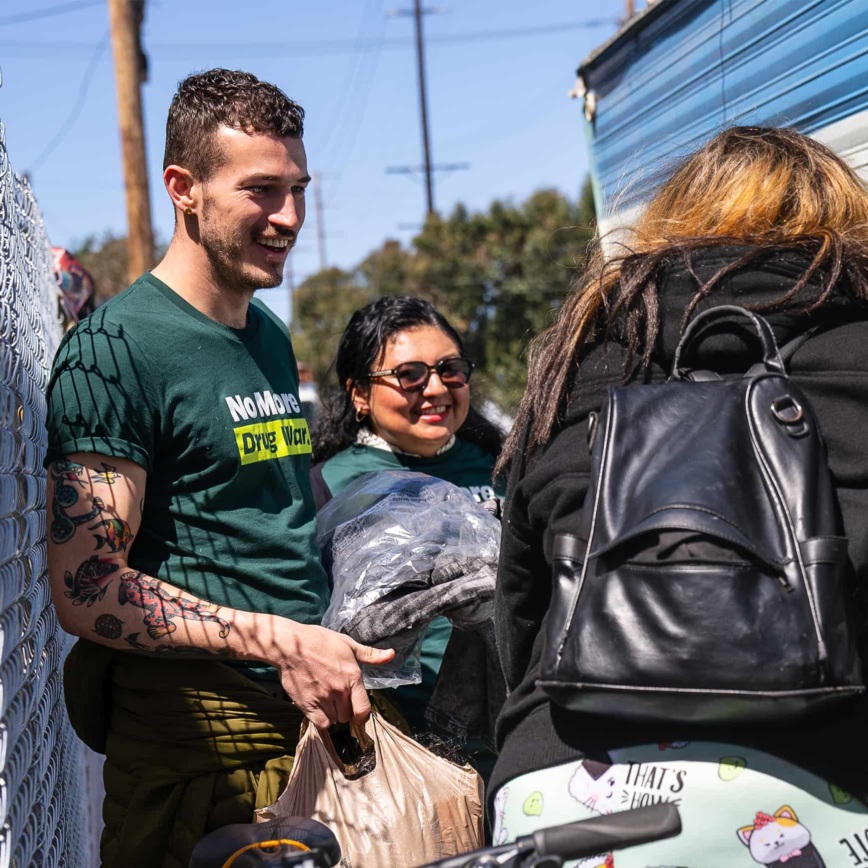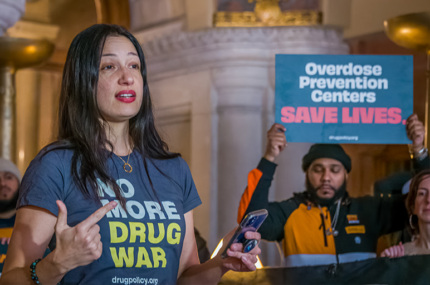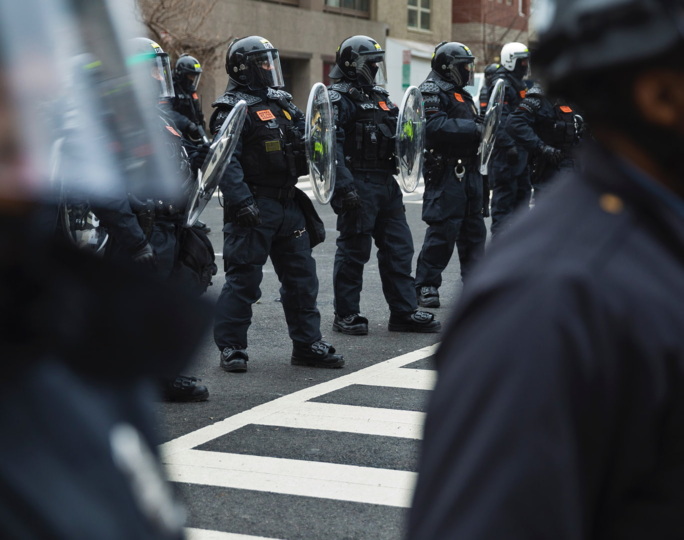We are DPA
The Drug Policy Alliance (DPA) addresses the harms of drug use and drug criminalization through policy solutions, organizing, and public education. We advocate for a holistic approach to drugs that prioritizes health, social supports, and community wellbeing. DPA opposes punitive approaches that destabilize people, block access to care, and drain communities of resources. We believe that the regulation of drugs should be grounded in evidence, health, equity, and human rights. In collaboration with other movements, we change laws, advance justice, and save lives.

End the drug war. Invest in communities.


The drug war—and the elected leaders who uphold it—labels everyone who uses certain substances a criminal. Punitive drug laws serve as a tool of oppression. They aggressively target people of color and people experiencing poverty. A criminal record can block job, housing, and education opportunities. Drug criminalization creates fear that can stop people from getting help for addiction or during an overdose emergency. Under drug prohibition, fatal overdose rates have dramatically risen and illicit drugs are stronger and more available. For people caught in the drug war, the impacts are far-reaching and long-lasting. Our communities deserve a better future.


